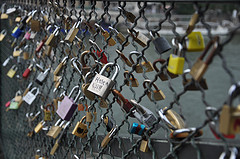How to remember all your different passwords

We all know that we shouldn’t use the same password everywhere since it’s a security issue, but sometimes we do it anyway. There are several software solutions that can keep track of all your passwords (such as KeePass or 1Password), but what if you don’t want to use something like that and you still want to use different passwords everywhere?
To remember my passwords, I use an approach similar to the following:
To begin with, you have to choose a master password and break it in half. You’ll use the first half as the first part of the new passwords and the other half as the last part of them. For example, abcd is going to be our first part and 34() the last part.
Then, you get the first 3 letters (or any other part, it’s up to you) of the service/website you’re creating the password for and add them to the middle of your password.
For example, if you’re creating a password for twitter, the middle part of your password will be twi. Therefore, your unique password for twitter will be abcdtwi34(), for facebook abcdfac34(), etc.
If you wish to make it a little harder to guess how the passwords are created (e.g. in the event that someone manages to find some of them in a plain text format and tries to compare them), there are several things to do.
You can reverse the letters, so the two passwords from the previous example will become abcdiwt34() and abcdcaf34(), or use a simple encryption technique such as the Caesar cipher to encode them (our examples become abcdwzl34() & abcdidf34() using a shift of 3) — but beware, every step you take will make the password harder to calculate, therefore to remember!
Photo by Gio Contardo
